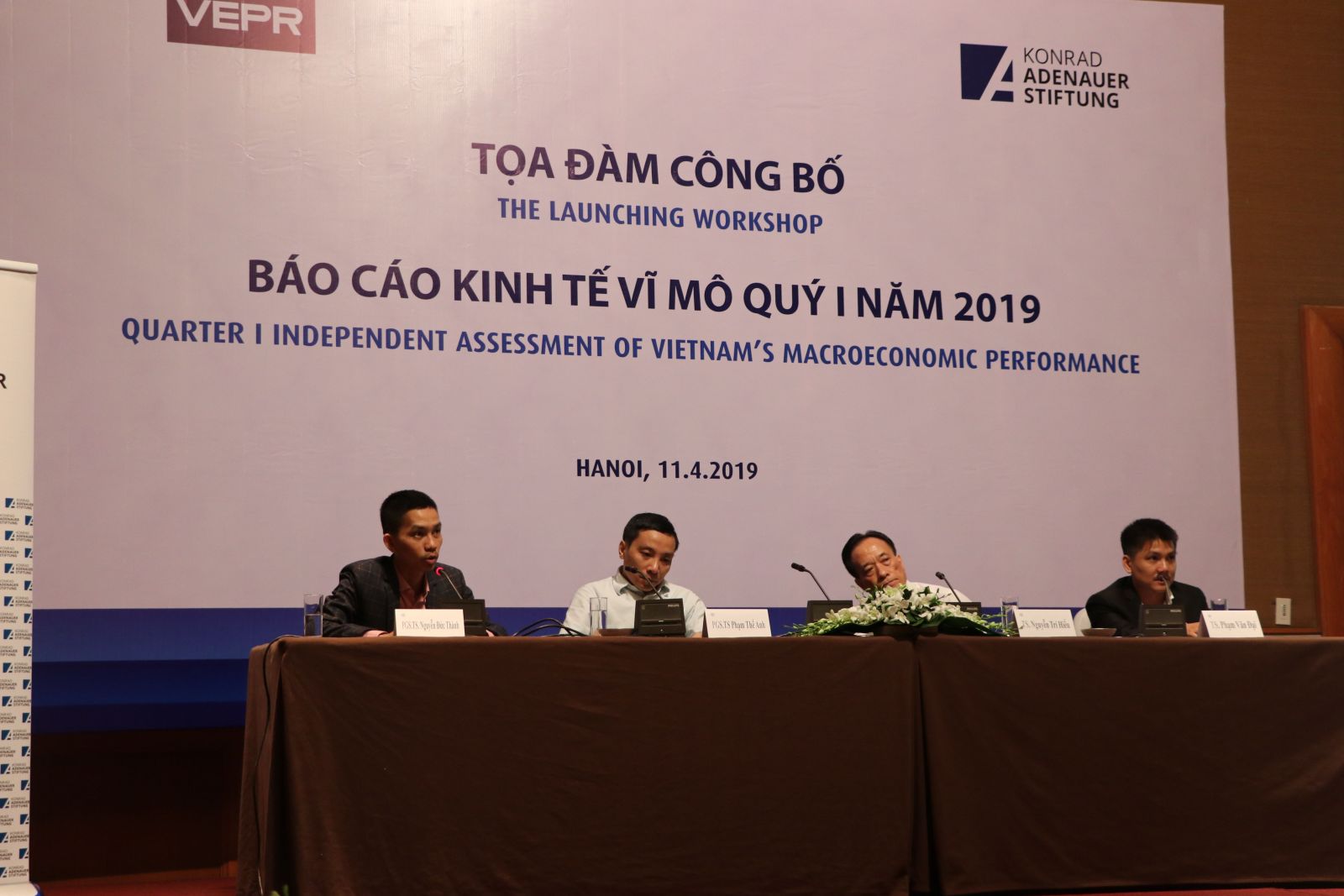
Download workshop materials HERE. Event photos are constantly updated HERE. Since 2016, VEPR started publishing widely and periodically the Quarterly Macroeconomic Report in the aim of updating and discussing timely the issues proposed for Vietnam’s economy. The distinctive feature of these seminars is that the attendees who mainly are journalists with influence in economic field will be given the priority, with the aim of providing the best information to the public not just only to the expert group. The seminar had the participation of experts such as Assoc.Prof.Dr. Nguyen Duc Thanh, Asso. Prof. Dr. Pham The Anh, Dr. Pham Van Dai, Dr. Nguyen Tri Hieu. and representatives of press agencies. .jpg)
Assoc.Prof Nguyen Duc Thanh, President of Viet Nam Institute for Economic and Policy Research (Viet Nam Institute for Economic and Policy Research) delivering the opening speech Opening the talk, Assoc.Prof.Dr. Nguyen Duc Thanh gave a speech to welcome the guests attending the seminar. He appreciated the efforts of the VEPR team to build the quarterly economic report numbers, as well as expressed hope in a continuing economic situation in the next quarter follow by 2019. 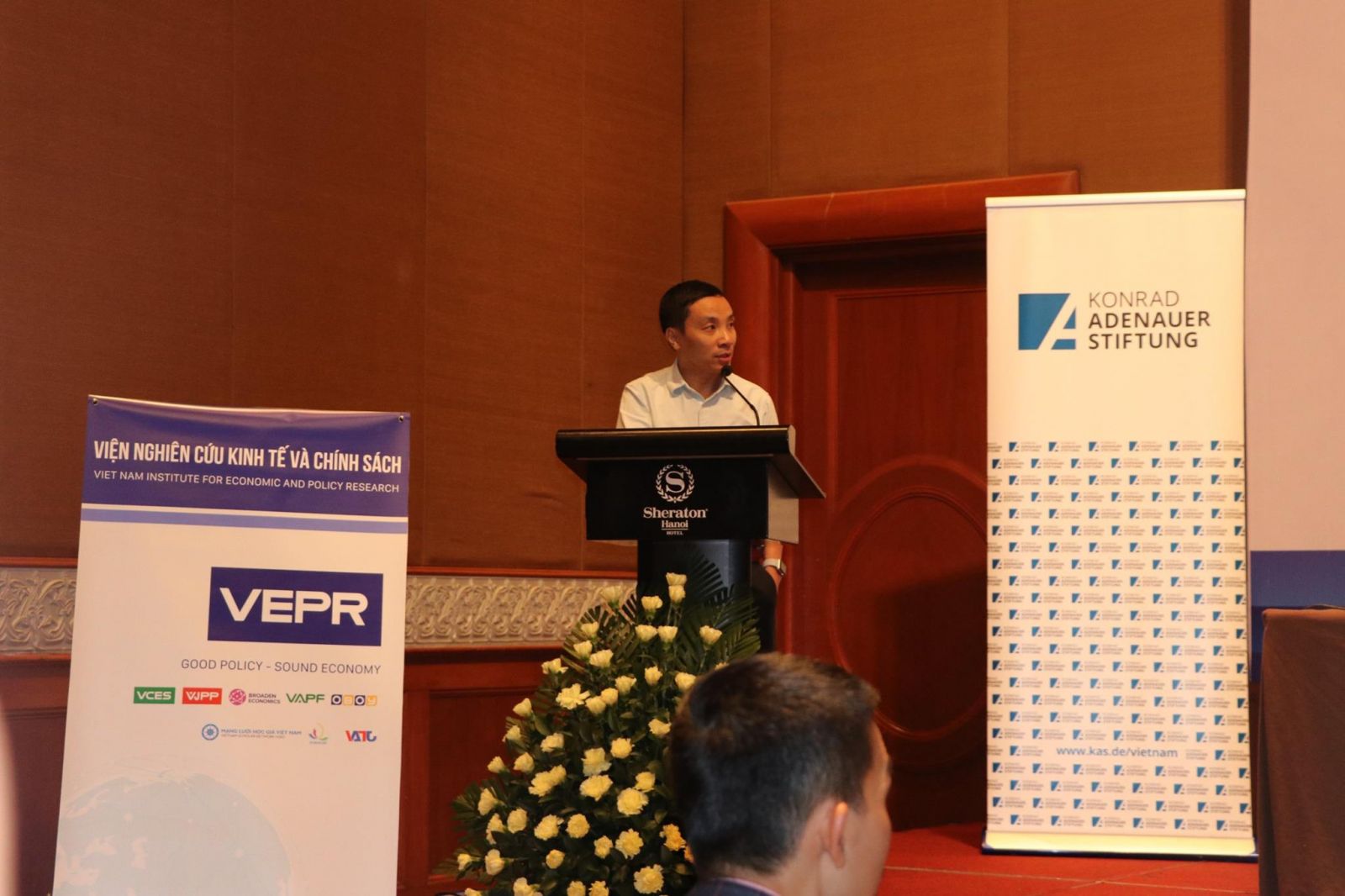
Assoc. Dr. Pham The Anh presents the report content In the report, it was clear that after the US - China trade-offing campaign and the Fed decided not to raise interest rates, the USD selling price of banks was almost stable. The central exchange rate of the SBV continued to increase slightly from the beginning of Q4 / 2018 until the end of Q1 / 2019. Specifically, the exchange rate on 31.3.2019 reached 22,976 VND / USD, up nearly 1% over the same period in 2018. Regarding the situation of enterprises, while the number of newly established enterprises and new jobs created did not increase much compared to quarter 4/2018, the number of temporary suspension of operations in the quarter was unusually high in January 2019 with 23,082 enterprises. , the highest in the last 10 years. Regarding inflation, Associate Prof. Dr. Pham The Anh, representative of VEPR's research team, said that the average inflation in Q1 / 2019 increased by 2.63% mainly due to the increase in energy prices. “In the context of fluctuating world commodity prices, coupled with the imposition of an environmental protection tax on petroleum from January 1, 2019, the State Bank still needs to monitor inflation risks in time. come to have appropriate response measures ”, said Associate Prof. Dr. Pham The Anh. 
TDr. Pham Van Dai in the discussion
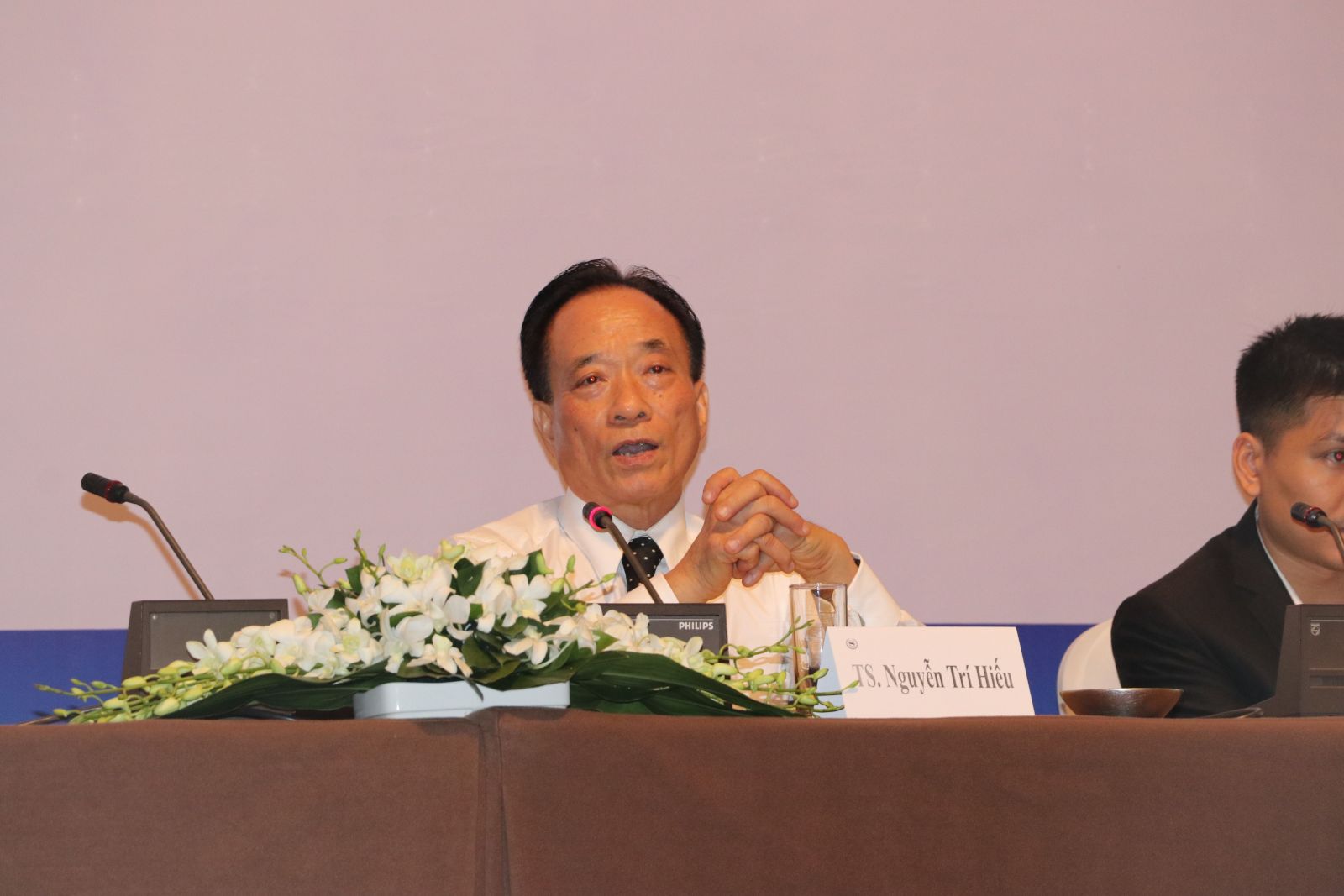 Dr. Nguyen Tri Hieu in the discussion session The report also stated that at the beginning of the first quarter of 2019, the State Bank began to net buy foreign exchange, flexibly settling VND demand in the Lunar New Year period and increasing the national foreign exchange reserve fund. The reason is that the exchange rate of the foreign exchange market in the first quarter was stable, the supply of foreign currency at the beginning of the year was plentiful, the liquidity in the market was good. The report also points out that, compared to the same period in 2018, the interbank interest rate in the first quarter of 2019 tends to be high, the narrowing fluctuation band is about 3.38% (mid-January) to 5.6%. (end of February - before Lunar New Year). Similar to the quarter 1/2018, the interbank interest rate reached the highest level in the near-Tet period due to high demand for short-term loans. After the peak season to the end of the first quarter of 2019, the interest rate was only 3, 32%. The cause of the increase in interbank interest rates is due to ensuring compulsory reserve ratios and fluctuations in deposits from large banks. Comment on this issue, TS. Nguyen Tri Hieu, a financial and banking expert, said that increasing the compulsory reserve ratio would cause a loss of liquidity for banks, then banks must push interest rates to attract deposits. This is the point to contribute to raising interest rates, but the increase in the required reserve ratio means that banks have to send a sum of money to the State Bank and when banks need money can be taken out. Regarding profitability, this is not good but to maintain stability for the bank, this is a positive thing. 
Assoc. Nguyen Duc Thanh, Director of the Institute of Economic and Policy Research in the discussion session Associate Prof. Dr. Nguyen Duc Thanh, Director of VEPR recommended that monetary policy should adapt to economic fluctuations in a timely manner. The top priority is to manage the exchange rate flexibly, to absorb the impact of external shocks. Interest rates should be kept at a stable level, enabling businesses to access capital markets, especially for industries that are on the rise and potential to participate in global value chains. In addition, lowering leverage and strengthening the banking system should also continue. Inflation in the first quarter of 2019 although it was moderate but tended to increase before the recent adjustments in electricity and gasoline prices. The impact of these shocks on domestic prices may last for months to come, requiring prudent management from the State Bank of the money supply and credit growth in the coming time. Some photos from the event: 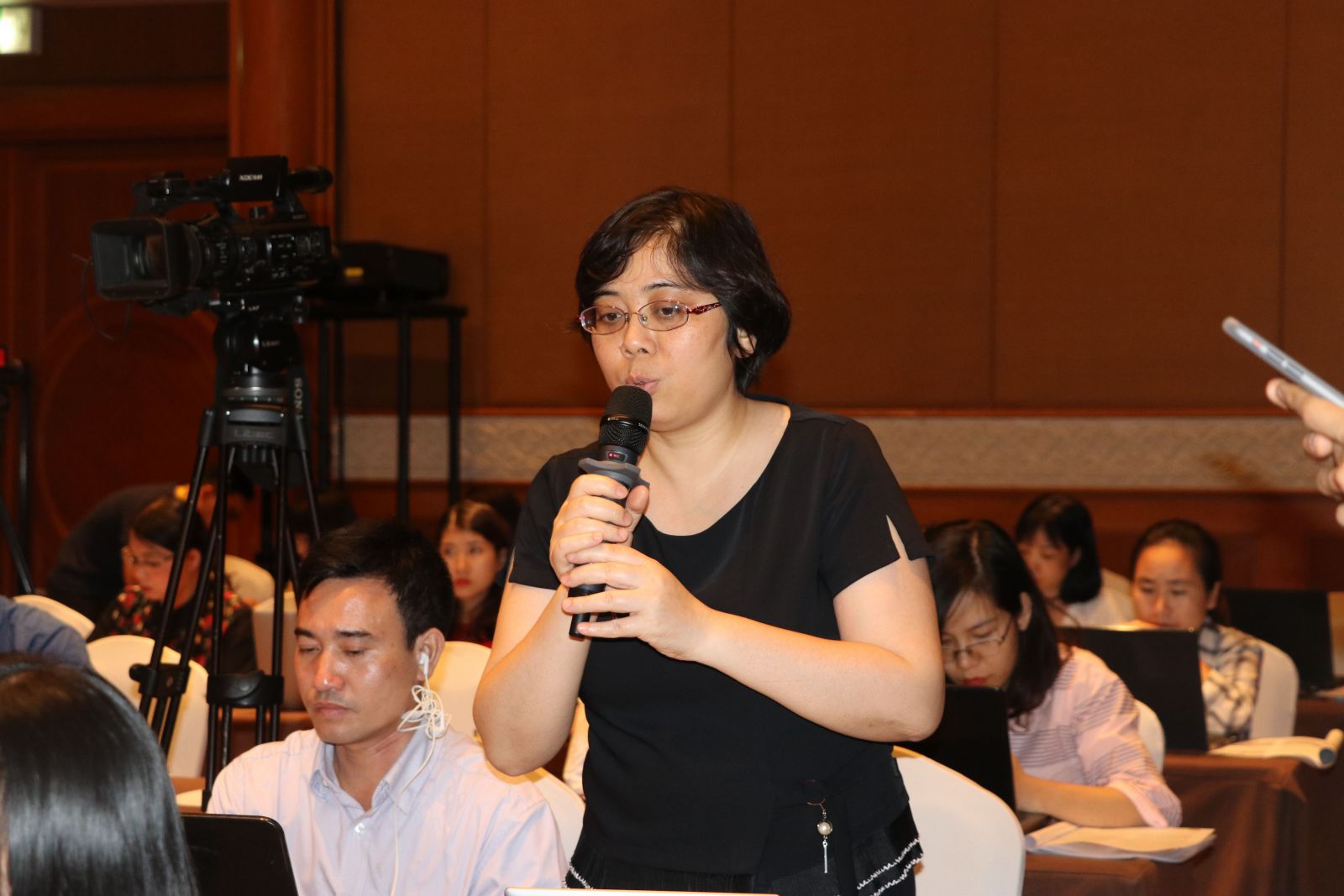 Ms. Mai Phuong (Securities Investment Newspaper) contributed ideas in the discussion
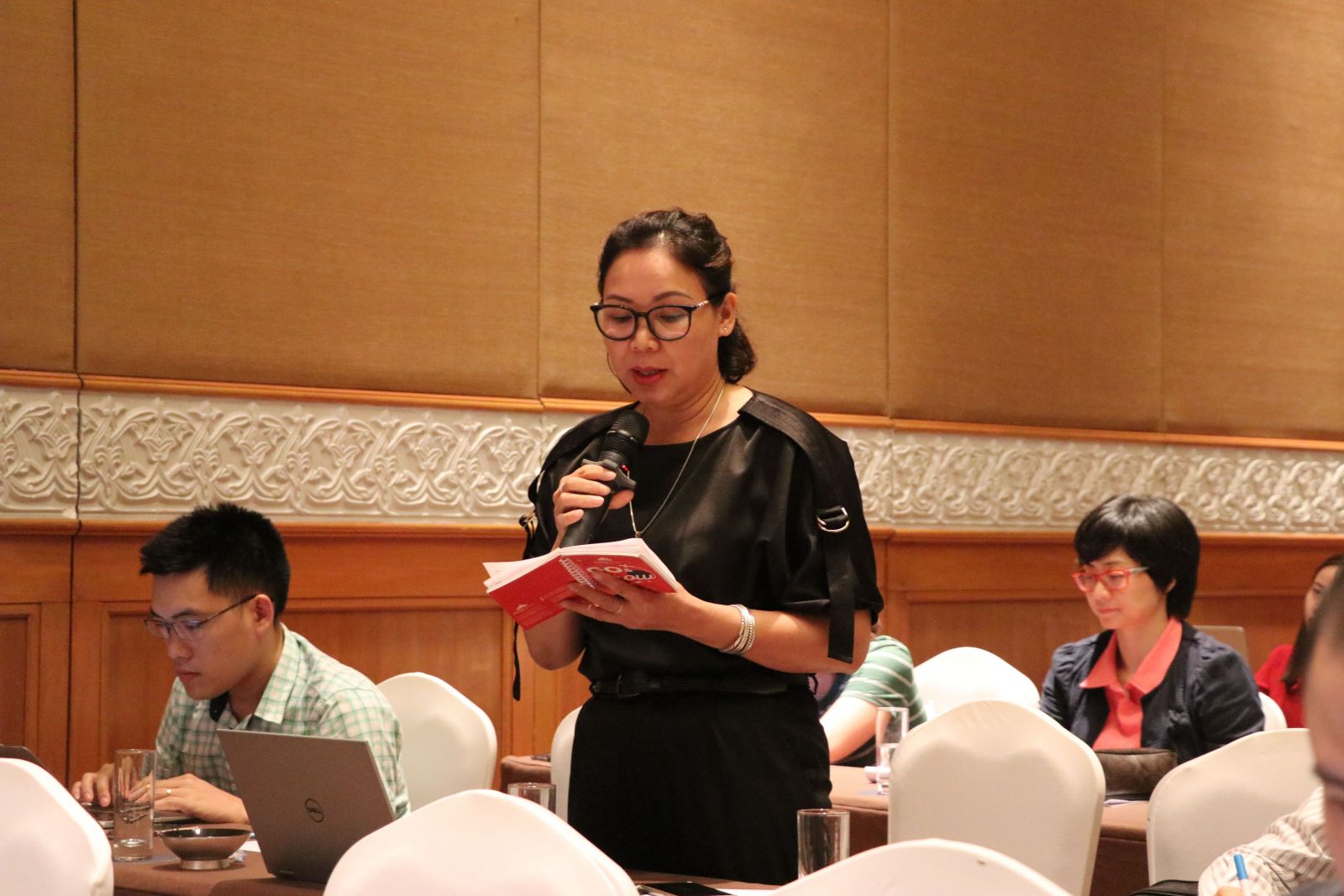 Ms. Hai Van (Journal of Bridge Bridge Investment) contributed ideas in the discussion
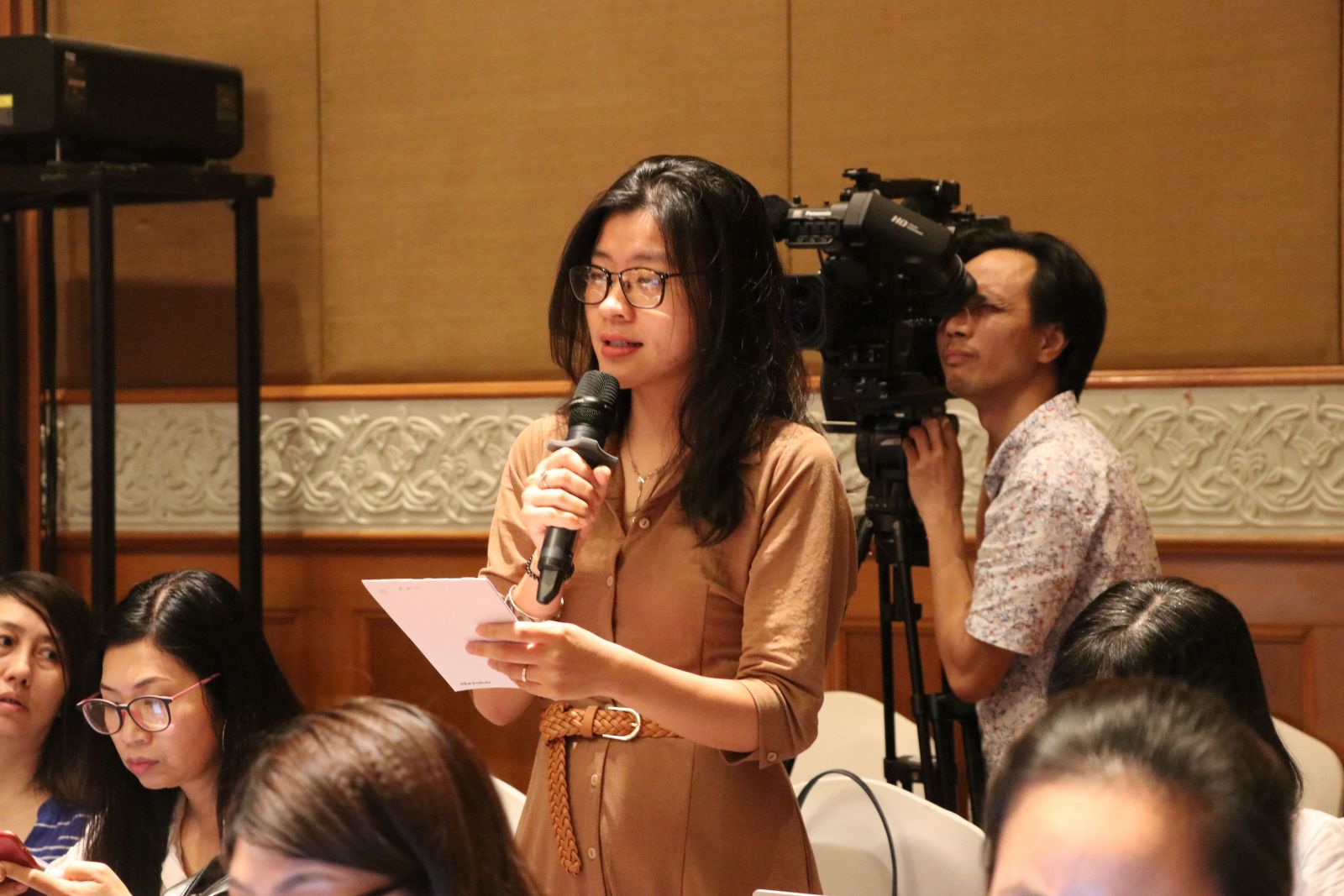 Ms. Thuy Dung (Saigon Electronics Newspaper) contributed ideas in the discussion | 






.jpg)


-03(1).png)


.jpg)










 Facebook
Facebook Twitter
Twitter YouTube
YouTube Google+
Google+